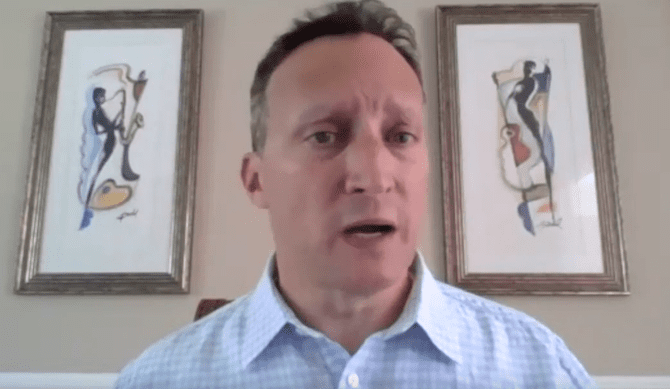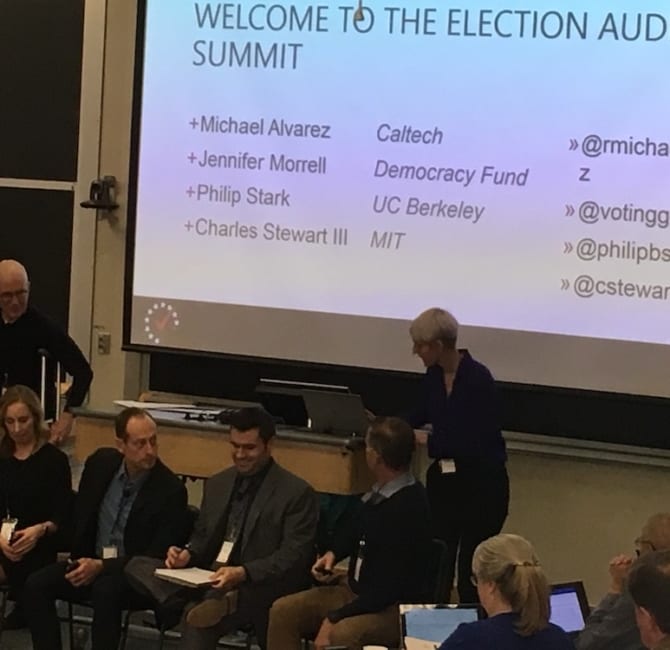The U.S. Senate Is Wary of Regulating Political Online Activity

(Image / https://michaelbennet.com/russia/)
The Senate Intelligence Committee showed a deepening understanding on Wednesday of how disinformation spread on social media incites political strife. But with few exceptions, the senators showed little inclination for regulating political activities on the online platforms or challenging their user-targeted advertising.
“The Russians undertook a structured influence campaign, not against the American government, but against the American people,” Sen. Richard Burr, R-N.C., and committee chair, said, summing up its latest hearing on foreign meddling in the 2016 presidential election. “Moscow saw the issues that talking heads yell about on cable news — race, religion, immigration and sexual orientation — and they used those to sow discord and to foment chaos. They leveraged our social media to undermine our political system as well. But make no mistake, Russia neither leans left or right, it simply seeks turmoil. A weak America is good for Russia.”
But beyond urging senior Facebook and Twitter executives who testified to keep doing more to protect and alert their users about malicious or inauthentic posts that sowed polarization, Burr’s concluding remarks suggested that the Senate panel was wary about aggressively regulating online political activity.
“Your companies must be at the forefront and combating those issues. You know your algorithms, your customers and your data collection capabilities better than any government entity does or should,” Burr said. “The government, civil society and the public will partner with you. . . There is no clear and easy path forward. We understand the problem. And it’s a First Amendment issue. We cannot regulate around the First Amendment. But we also cannot ignore the challenge. I’m confident that working together, we can find a solution and a path forward.”
Indeed, the Senate Intelligence Committee appeared to be largely relieved that Silicon Valley’s media giants have begun to do what Congress has failed to do since the early 2000s — which is to try to regulate online political actors. (The last big campaign finance bill was the so-called McCain-Feingold law in 2002, which has been stripped down after litigation from GOP-connected lawyers.)
In this respect, Facebook has led the way in Silicon Valley by requiring anyone buying political ads or posts to certify and disclose who they are, their spending, and their intended audiences and creating a searchable archive of their political ads, explained Sheryl Sandberg, Facebook’s chief operating officer. She repeatedly struck the tone that Facebook was an ally, not an adversary, of American democracy and Congress.
“We’re getting better at finding and combating our adversaries, from financially motivated troll farms to sophisticated military intelligence operations,” she said. “We’ve removed hundreds of pages and accounts involved in coordinated inauthentic behavior—meaning they misled others about who they were and what they were doing.
“The threat we face is not new,” Sandberg continued. “America has always confronted attacks from opponents who wish to undermine our democracy. What is new are the tactics they use. It’s going to take everyone — including industry, governments, and experts from civil society—working together to stay ahead.”
Facebook was also ranking content using outside fact-checkers, removing “inauthentic content,” alerting users when they receive suspect content, and taking other steps, she said, including working quietly with federal police and intelligence agencies. To lesser degrees, Twitter and Google have followed this template — although Twitter CEO Jack Dorsey, who also testified, said while he cooperated with law enforcement that he also was concerned about protecting users’ privacy.
“The purpose of Twitter is to serve the public conversation,” he said. “We want to be a global town square.”
The posturing by Facebook and Twitter that they are on the side of the good guys, and are taking steps as private companies that the government would have a harder time doing, is a shrewd strategy that appears to be playing well for them.
The committee members were split along partisan lines about what might be done, which was reflected in their questions. Democrats tended to ask about how the platforms ascertained what was and was not authentic, implying that some regulation of electioneering was warranted. Republicans were concerned about censoring any user’s political views, but then cautioned the executives about working with adversary foreign governments.
Sandberg and Dorsey replied they were continuously weighing those concerns and their corporate responses. Where the senators’ questioning did not linger was on the underlying business models. That is, these giant platforms spy on their users, track and compile personality profiles, and sell micro-targeted ads based on gleaned insights — including to domestic and foreign political activists. Instead, a few senators urged Facebook to be more transparent about how they operate, and to more aggressively encourage its users to exert more ownership over their personal data.
Sandberg and Dorsey both said that people owned their data. They could access it, download and delete it. But neither Sandberg nor Dorsey made any offer to modify the targeted advertising systems that have made social media such a powerful political tool. If any faults were admitted, it was on the human side of not taking the threat by malevolent actors seriously enough or soon enough—which Dorsey repeated several times while pledging to do better.
While some Democrats alluded to the need for regulating electioneering in online media, the most notable case fell outside of the political speech arena. Currently, under the Communications Decency Act of 1996, online platforms are not legally liable for any content posted by users. Sen. Joe Manchin, D-W.V., told Sandberg and Dorsey that their platforms had been used by drug dealers to sell opiates that had killed people.
“Do you all feel any responsibility, because there have been a lot of people affected and a lot of people have died, receiving information about how to obtain drugs through your platforms?” Manchin asked, then mentioning laws holding companies liable for assisting sex traffickers. “We passed bills that would hold you liable. Don’t you think we should do the same?”
Neither Sandberg nor Dorsey would acknowledge any guilt. Instead, they carefully said they were open to some regulation—however, Congress would have to be very careful because doing too much could prevent them from doing other things to combat misuses of their platforms.
“We certainly are open to dialogue around the CDA and the evolutions of it,” Dorsey said. “We benefit from a lot of protections it gives us in the first place to take actions on the content within our service. The only reason we’re able to even speculate that we can increase more health in the public square is because of CDA [Section] 230. We need to finely balance what those changes are and what that means.”
“Would it change you all’s approach to how you use your platforms with changing of Code 230?” Manchin asked.
“We have to do that independent of changes to 230,” Dorsey said.
“These things [selling opiates] are against our policies, and we want them off [our platform], and we want to take all measures to get them off,” Sandberg replied. “The safe harbor of 230 has been very important in enabling companies like ours to do proactive enforcement without increasing our liability. And so we’d want to work very closely on how this would be enacted.”
The Senate Intelligence Committee may have a deepening understanding of how social media platforms can be an unrivaled communication, audience-finding and propaganda tool. But they also seem to have a growing understanding that Silicon Valley unambiguously wants to be left alone to solve the problems it helped to create.
Whether that status quo will hold past the 2018 midterms may depend on who wins in November — and whether or not the congressional elections are seen as free of meddling.
Also Available on: www.salon.com






